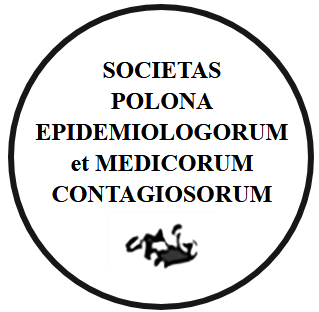Comparison of lifestyle and nutritional status between women with and without metabolic syndrome
Publication date: 2024-02-02
Przegl Epidemiol 2023;77(3):344-358
KEYWORDS
ABSTRACT
INTRODUCTION.
Amidst the growing epidemic of obesity and diabetes, metabolic syndrome (MetS) is one of the greatest health problems. Lifestyle factors and bad habits are responsible for the emergence and development of MetS.
OBJECTIVE.
The aim of the study was to compare and check whether women with MetS adhered to a healthy diet and had a healthier lifestyle than women without MetS, and to compare the impact of women’s lifestyles on their nutritional status.
MATERIAL AND METHODS.
The study included 167 women aged 20-78. As per guidelines, all tests required fasting. Comparisons of individual quantitative variables between groups were made using the Student’s t-test for independent variables or the Mann-Whitney U-test. The relationship between quantitative variables was verified with the Spearman correlation coefficient. All statistical tests were based on a significance level of p<0.05.
RESULTS.
Women with MetS were more likely to have bad habits such as smoking, adding sugar to beverages and adding salt to food on the plate, while alcohol consumption was more common in women without MetS, but there was a statistically significant positive correlation between alcohol consumption and HDL-cholesterol levels in both groups. Women with MetS showed statistically significantly higher body weight, BMI, waist and hip circumferences (p<0.001), a statistically significant positive relationship between adding sugar to beverages and triglyceride levels (r=0.2699, p=0.015). In women without MetS, there was a statistically significant negative correlation between HDL-cholesterol levels and cigarette smoking (r=-0.2709, p=0.014). Women with MetS had statistically significantly higher mean systolic and diastolic blood pressure and mean serum levels of total cholesterol (p<0.001), LDL-cholesterol (p=0.007), triglycerides (p<0.001) and glucose (p<0.001) than women without MetS.
CONCLUSIONS.
Nutritional errors were shown in both groups, including deficiencies in calcium, folates, iron, vitamin D and excessive sodium and phosphorus intake. Therefore, it is important to prevent the onset of MetS components and to educate and assist professionals in setting realistic goals individually adapted to each patient.
Share
RELATED ARTICLE
We process personal data collected when visiting the website. The function of obtaining information about users and their behavior is carried out by voluntarily entered information in forms and saving cookies in end devices. Data, including cookies, are used to provide services, improve the user experience and to analyze the traffic in accordance with the Privacy policy. Data are also collected and processed by Google Analytics tool (more).
You can change cookies settings in your browser. Restricted use of cookies in the browser configuration may affect some functionalities of the website.
You can change cookies settings in your browser. Restricted use of cookies in the browser configuration may affect some functionalities of the website.





